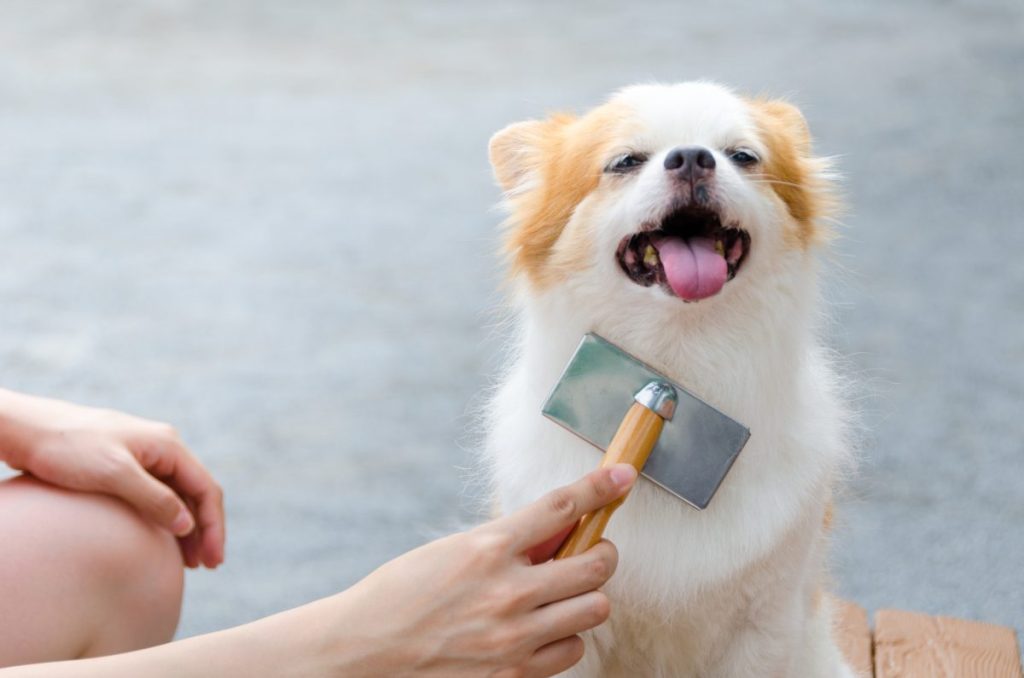
Why is My Female Dog Shedding So Much? Unraveling the Mystery
Share
For many pet owners, seeing their beloved furry friend shedding clumps of fur can be concerning. If youre asking why is my female dog shedding so much, you are not alone. Shedding is a natural process, but there are various factors that can cause excessive fur loss. Understanding these factors is crucial for maintaining your dog's health and comfort.
In this article, we will delve into the reasons behind shedding in female dogs, the health implications, and what you can do to manage the situation effectively.

What Causes Shedding in Female Dogs?
1. Natural Shedding Cycles
Shedding varies significantly among dog breeds. Most dogs experience two main shedding seasons: spring and fall. During these times, they lose their winter or summer coats. For female dogs, hormonal changes related to the estrous cycle can also lead to fluctuations in shedding patterns.
2. Allergies and Irritants
Just like humans, dogs can suffer from allergies that cause their skin to become itchy and inflamed. Common allergens include pollen, dust mites, mold, and certain food ingredients. If your dog is shedding excessively and scratching more than usual, this could be a sign of an allergy. To learn more about allergenic ingredients in dog food, check out this article on ingredients to avoid.
3. Skin Conditions
Various skin conditions can lead to excessive shedding. Conditions like dermatitis, fungal infections, or parasites like fleas and ticks can cause your dog to lose more fur than usual. Regularly check your dog's coat for signs of irritation or infection.

Health Implications of Excessive Shedding
1. Nutritional Deficiencies
Feeding your dog a balanced diet is essential for maintaining a healthy coat. Nutritional deficiencies, particularly in fatty acids, vitamins, and minerals, can lead to shedding. Ensure your dog's diet has adequate omega fatty acids, found in high-quality dog food. If you're curious about what nutritional ingredients to focus on, read more about it here.
2. Stress and Anxiety
Just like humans, dogs can experience stress and anxiety, and one of the physical symptoms can be shedding. If you've noticed a sudden increase in shedding, consider recent changes in your dog's environment, such as new family members, changes in routine, or moving homes. Teaching them to manage anxiety through training or calming products can help.
3. Underlying Health Issues
In some cases, excessive shedding may be a symptom of more serious health conditions, such as hormonal imbalances, autoimmune diseases, or cancer. If you cannot determine the cause of your dog's shedding or if it is accompanied by other concerning symptoms, consult your veterinarian.

How to Manage Shedding in Female Dogs
1. Regular Grooming
One of the most effective ways to manage shedding is through regular grooming. Depending on your dog's coat type, you may need to use different brushes or grooming tools. Brushing not only removes loose fur but also distributes natural oils in your dog's skin, promoting a healthy coat.
2. Bathing Practices
Bathing your dog regularly can help remove dead hair and reduce shedding. Use a high-quality dog shampoo formulated for shedding and skin conditions. This care routine can help improve skin health and reduce allergens trapped in your dog's coat.
3. Proper Nutrition
Ensure youre feeding your dog a premium diet rich in essential nutrients. If you're looking for recommendations, explore recipes that avoid certain harmful ingredients. You can check what ingredients to avoid in dog food.
4. Consult Your Veterinarian
When in doubt, it's always best to consult a veterinarian. They can provide you with tailored advice based on your dogs health and specific needs and may recommend supplements or medications if necessary.

Conclusion
If you're wondering why is my female dog shedding so much, remember that shedding is a natural process influenced by numerous factors, including seasonal changes, diet, and health. Armed with the right knowledge and tools, you can help your dog maintain a healthy and vibrant coat. Regular grooming and proper nutrition are essential steps in managing your dog's shedding effectively.
FAQs
1. Is shedding normal for all dogs?
Yes, shedding is a normal physiological process. However, excessive shedding can indicate health issues or stress.
2. Can diet affect my dog's shedding?
Absolutely! A poor diet lacking essential nutrients can lead to poor coat health and increased shedding.
3. How can I reduce shedding during peak seasons?
Increase your dog's grooming frequency using specialized tools to manage seasonal shedding effectively.
As an Amazon Associate, I earn from qualifying purchases.
